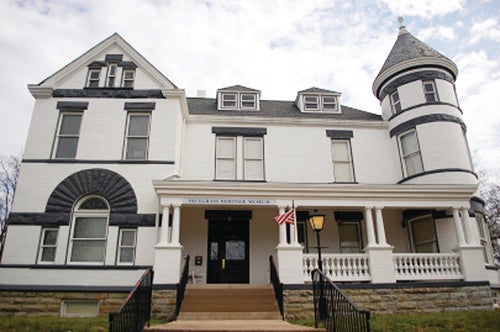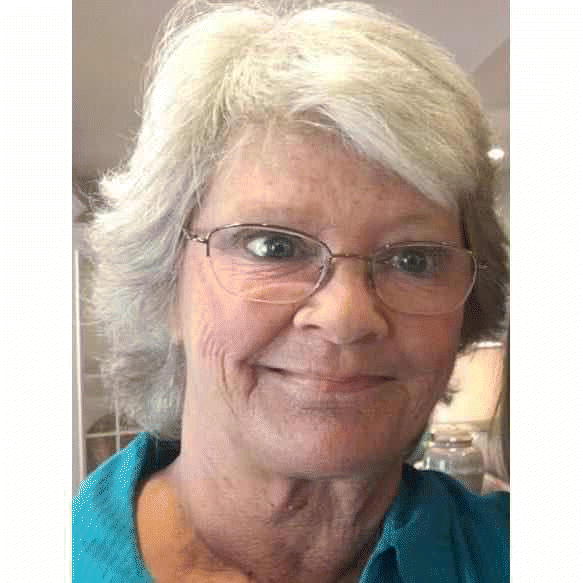At the Museum: ‘Jean Ritchie’ visits
Published 9:04 am Monday, January 29, 2018
By Rosemary Campbell
“Singing was like walking or talking or breathing for our family,” said Jean Ritchie, as presented by Rachel Lee Rogers, in a Chautauqua presentation at the Bluegrass Heritage Museum’s January Second Thursday program.
“Jean Ritchie: Damsel with a Dulcimer” highlighted songs and stories of perhaps Kentucky’s premier folk artist of the 20th century. With several dulcimers and her richly sweet soprano voice, Ms. Rogers provided an uplifting and thoughtful portrait of a woman who spent her life preserving and sharing her beloved mountain music.
Born in Viper in Perry County in 1922, Jean was the youngest of 14 children. Singing was a part of everything they did, from chores to relaxing on the porch or around the fireplace.
“We didn’t get a radio until 1947, so we didn’t know the rest of the world called it ‘hillbilly’ music,” Rogers said.
Of course, she added, “It’s old as the hills.”
Jean left home to attend the University of Kentucky and graduated with a degree in social work. She moved to New York and began teaching music at the Henry Street Settlement School.
“No mountains in Manhattan…,” Jean/Rachel said wistfully.
Instead, she brought the mountains with her as she shared her songs with the students and at coffeehouses in the evenings.
The country experienced a folk music boom after World War II and Jean fit right in, performing in a variety of venues, both live and on radio. Folklorist Alan Lomax recorded her singing more than 300 songs and sent them to the Library of Congress.
She appeared at the Newport Folk Festival with Arlo Guthrie, Joan Baez, Bob Dylan and more. Though relatively unknown compared to these artists, she brought the 10,000 people in the audience to silence in appreciation of her a cappella rendition of “Amazing Grace.”
“I was a swimmer in a quiet pond who was caught in a tidal wave,” she said
Ritchie might not have been as famous as some of her contemporaries, but she became known as the “Mother of Folk” through her influence on the genre. She produced 33 albums, and her songs were covered by Johnny Cash, Emmylou Harris, Linda Ronstadt, Dolly Parton and others.
There was also a surprising (to her) acknowledgement of her music.
“Music has, I guess been used to stand up for what’s right since time began.” Like fellow folk artist Pete Seeger, who often sang about injustice, Jean found herself listed in “Marxist Minstrels.”
Her own most famous protest song, “Black Waters” decries the destruction wrought in her beloved mountains by strip mining’s effect on the environment.
Though she came back home to visit, Jean lived most of her life in New York. She married photographer George Pickow in 1950 and they had two sons. Jean was awarded a Fulbright Scholarship in 1952 and traveled with her husband for 18 months throughout Great Britain and Ireland, “hunting the grandmothers of our songs … the ancestors of what we’ve been singin’ on the porch.”
Though she preferred singing unaccompanied, Jean became associated with the mountain dulcimer which she also played, and she is credited with reviving interest in the instrument. For a while she and her husband owned a dulcimer-making shop in New York.
Throughout her life, Jean received many honors and she played at such prestigious venues as Carnegie Hall and the Royal Albert Hall. But her heart remained in the mountains.
After her husband’s death in 2010 Jean finally moved back to Kentucky, and she died in Berea in 2015. (One of her sisters, Edna Baker, lived in Winchester.)
Her legacy perhaps could be summed up by what Jean/Rachel said: “I did not so much leave my mountains as bring them to people who needed them.”
Rogers, from Versailles, grew up with this music and cited her grandmother’s influence in her own musical life. She attended Northern Kentucky University, Rutgers and the London Academy of Music and Dramatic Arts.
Currently she serves as the arts facilitator at the School for the Creative Performing Arts (SCAPA). She spends her days teaching drama to middle school students.
Rachel prepared this Chautauqua program for two years and has presented it throughout the state, including Jean’s home grounds of eastern Kentucky. She shared she has been invited to go to Jean’s family’s reunion next summer, and she is both excited and nervous.
“You want to get it right,” she said
The Chautauqua Program is provided by the Kentucky Humanities Council.
The museum’s next Second Thursday Program is Feb. 8. It will focus on the creation of Clark County’s African American Pictorial History Book, which will be published in the near future. The program is free and begins at 6:30 p.m. Doors open at 6 p.m. and refreshments will follow.
Rosemary Campbell is a volunteer and board member at the Bluegrass Heritage Museum. She is currently director of historic publications.






